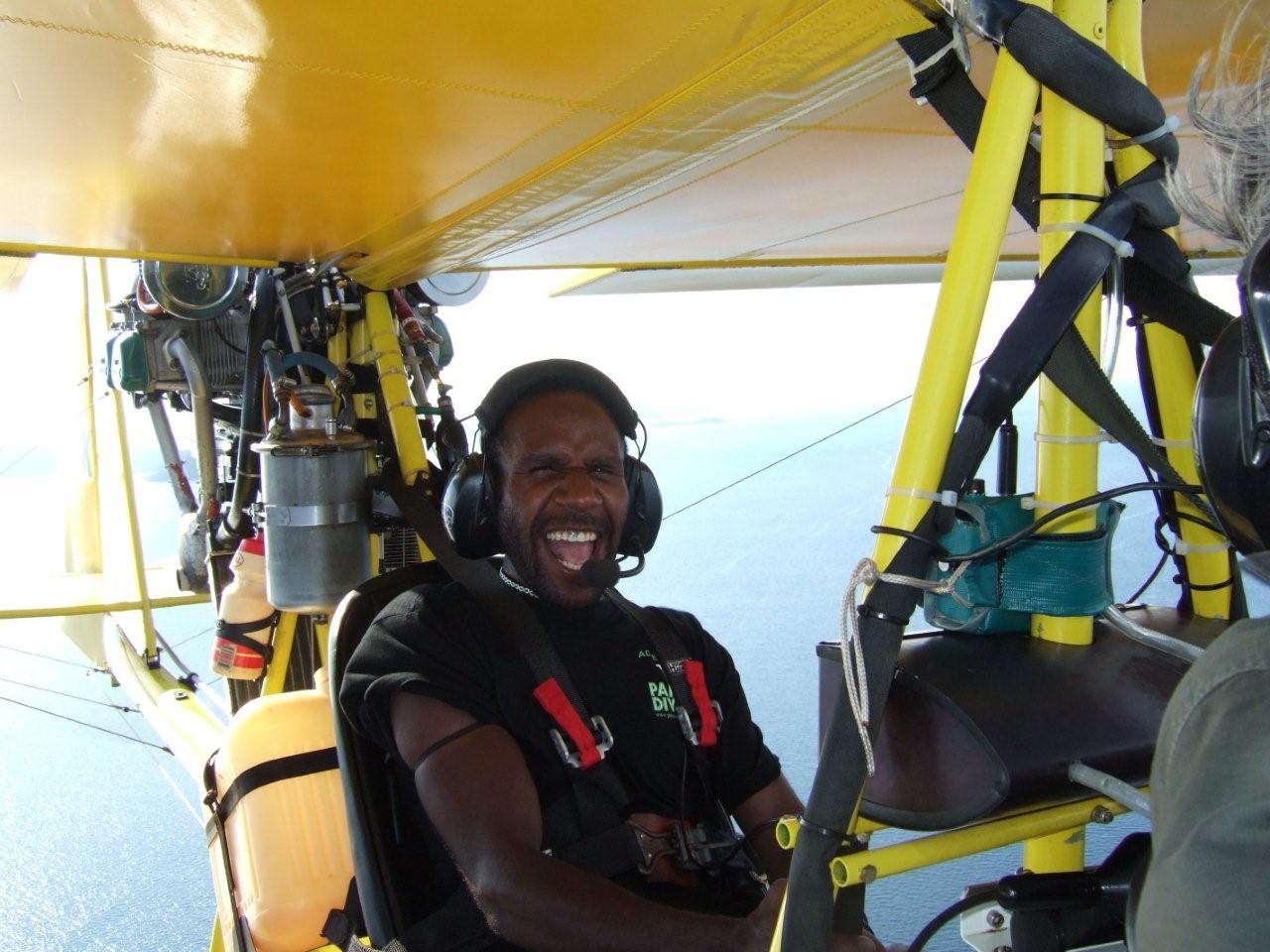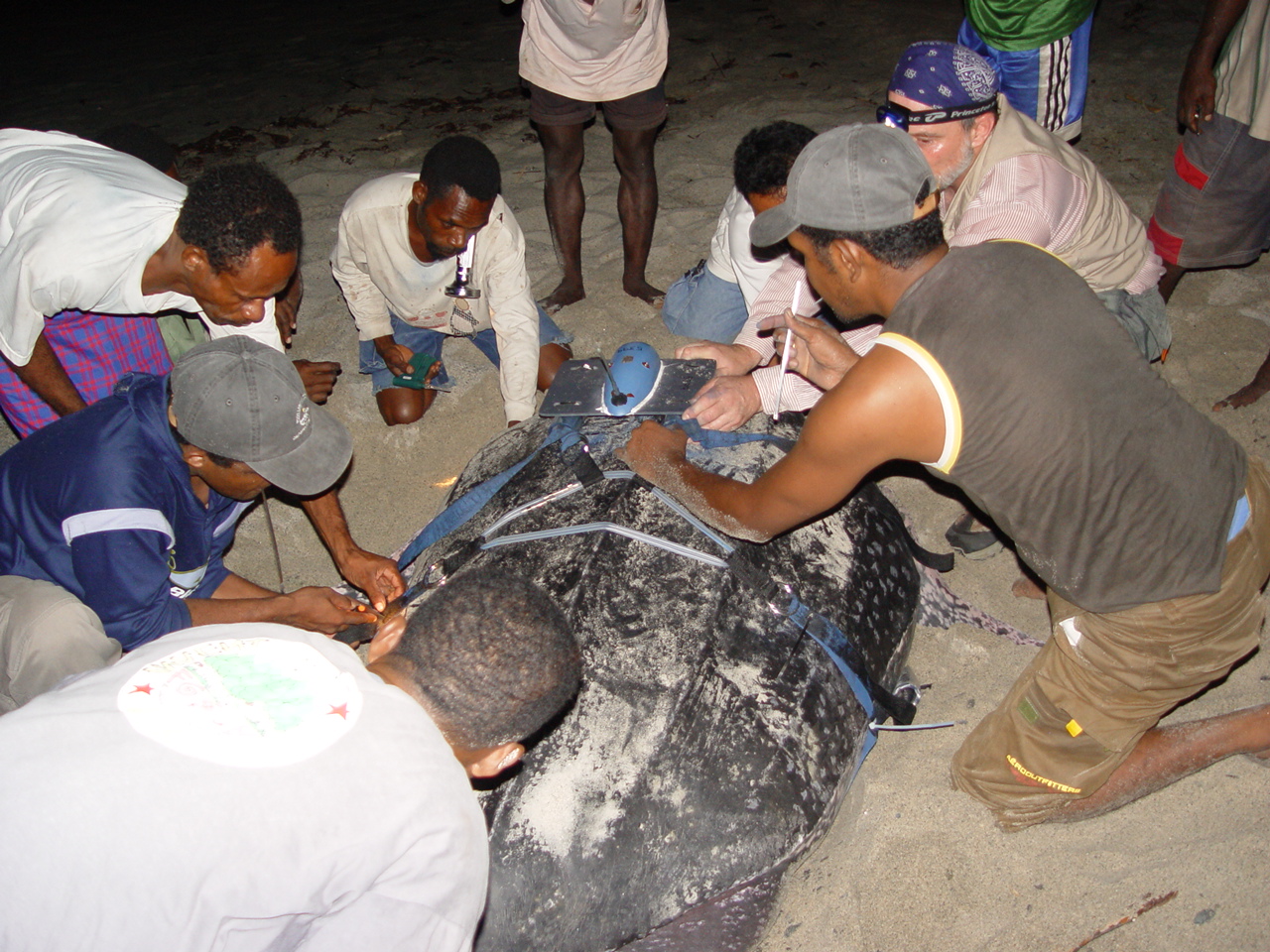Ecosystem-based Management Science Program
Aerial Resource Use Monitoring. Copyright Conservation International.
Leatherback Sea Turtle Monitoring. Copyright Conservation International.
In order to scientifically characterize the Seascape, the BHS coalition launched a comprehensive and interdisciplinary Ecosystem-based Management Science Program in 2004. The EBM program included 18 composite cutting edge studies across a wide range of disciplines, including ecology, physical oceanography, fisheries, environmental economics, social science, political science, and anthropology. By working across disciplines, the EBM program generated a plethora of valuable information that guided the development of the Seascape EBM strategy.
Once synthesized, the results of the EBM science program provided the foundation for the design of the BHS MPA network. To ensure maximum benefits to local communities, the MPA network was designed on a scale large enough to rebuild and maintain local reef fish stocks, protect globally significant biodiversity and maintain ecosystem function and processes, while also giving strong protection to Papua’s most vulnerable communities.
• Awareness and support from government and communities
• Scientific and technical leadership from NGOs and university partners, including ability to synthesize multi-disciplinary studies to support interdisciplinary planning
• Financial support from a committed donor
Start flexible and think locally: Before initiating MPA development, there is a need to understand the nuances of seascape: its science, culture, governance systems, the aspirations of its citizens, and its conflicts. Once all this information is available, it can be used to further cultivate enabling conditions.
The most useful study from the EBM program was an unexpected one—community tenure mapping. Results from a year-long community tenure mapping study not only gave the BHS team a deep knowledge of community dynamics and aspirations, but it also provided invaluable information on areas that could be protected with little conflict or where protection could actually help reduce existing community conflicts.


